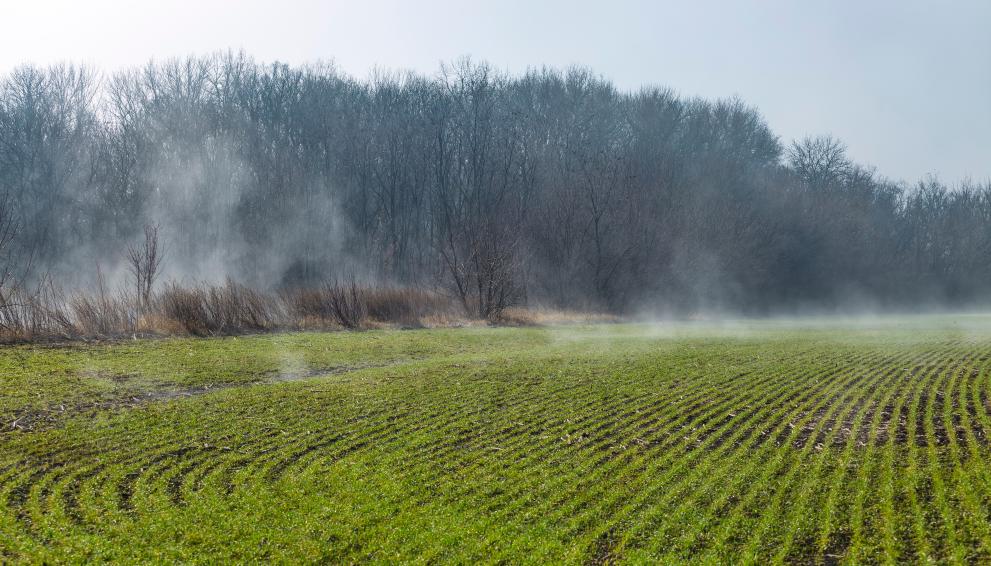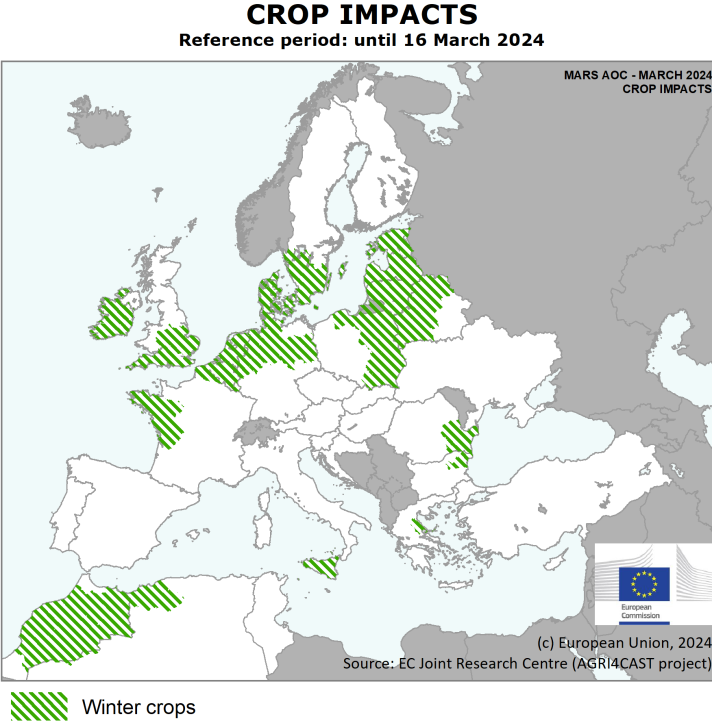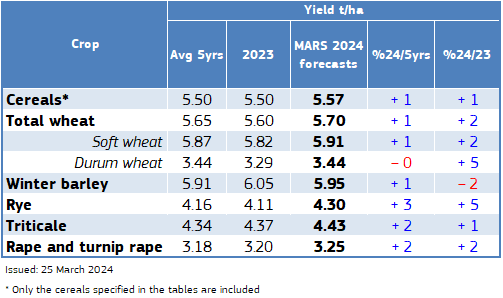
In the north, the most severely affected fields are expected to be resown with spring or summer crops. In the south, the impacts are mainly reflected in reduced yield potential.
Excessively wet conditions, in some regions combined with frost damage, negatively affected large areas in the north
Since autumn, large parts of western, northern and eastern Europe experienced excessively wet conditions, which negatively affected the sowing, emergence and development of winter crops. In northern and eastern Europe, additional damage to crops was caused by severe frost events. Persistently wet soils also created challenging conditions for farmers to access and work the fields, thus affecting the (re)sowing of spring cereals.
Persistent dry conditions negatively impacted the yield potential in several southern regions
In eastern Romania and eastern Bulgaria, winter crops are suffering from a persistent rainfall deficit, which particularly affects winter rapeseed. In Sicily and the Maghreb, drought conditions during the winter led to low winter crop biomass accumulation. The situation is particularly serious in the western Maghreb, where continuing hot and dry weather conditions have led to a situation in which crops are at imminent risk of failure.
Crop yield forecasts still based on historical trends
As it is still early in the season, the crop yield forecasts reported in this edition of the Bulletin are – with a few exceptions - based on historical trends.
Further information
Subscribe to the JRC MARS Bulletin | (Unsubscribe from your profile page)
JRC MARS (Monitoring Agricultural Resources) Bulletins
The latest information about global agricultural production hotspots for countries at risk of food insecurity is available on the JRC’s ASAP (Anomaly hot Spots of Agricultural Production).
Details
- Publication date
- 25 March 2024
- Author
- Joint Research Centre
- JRC portfolios






